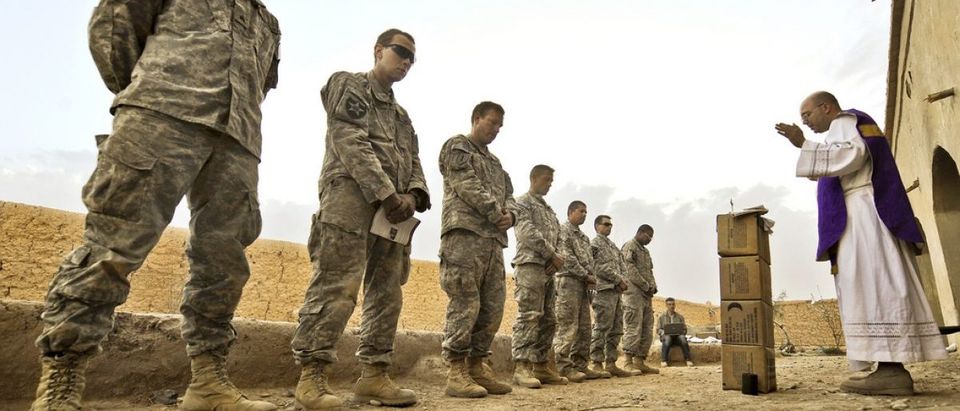WASHINGTON — The Chaplain Alliance for Religious Liberty sent a letter to the acting Secretary of the Army Robert Speer Monday about the Obama administration’s outgoing Army Sec. Eric Fanning last minute decision to sign a directive “hours before his resignation” that would give “training on implicit or unconscious bias.”
“The military exists to protect our nation, not to be used as a laboratory for social engineering-and especially not from an outgoing official’s 11th hour order,” said Chaplain (COL) Ron Crews, USA (Retired), executive director of Chaplain Alliance for Religious Liberty, said in a statement. “This directive does nothing to increase military readiness but wastes valuable training time just to promote a political agenda.”
Fanning signed Army Directive 2017-06 (“Promoting Diversity and Inclusion”) immediately prior to his resignation on Obama’s last day as president. The directive mandates the Army to spend time, finances and personnel to develop training against “implicit or unconscious bias.”
“The secretary does not define what this so-called unconscious bias is, but we believe this is a direct assault on those Army personnel who hold traditional Biblical beliefs concerning sexual ethics,” the Chaplain Alliance letter says. “Given the variety of serious threats our military faces every day, the Army must cease from continuing such training mandates that cannot be shown to help our soldiers be better prepared for combat readiness.”
The organization is a group of chaplain endorsers and is composed of faith groups that provide chaplains for the U.S. military and other agencies needing chaplains. “The endorsers in the Chaplain Alliance speak for more than 2,600 chaplains serving the armed forces,” their statement says.
Confirmed in September 2015, former Sec. Fanning was the first openly gay man to lead the Army. He had served as as acting under secretary of the Army since June of 2015 before being promoted three months later.
Fanning told The Washington Blade in December 2016 that the Trump administration would have a difficult time to undo LGBT policies in the military that were central during the Obama administration, particularly the repeal of “Don’t Ask Don’t Tell.”
“It’s hard to undo these things,” Fanning said. “Having a conversation about whether someone can come into the military, whether someone really can serve is different than having them in and then saying you guys are out now, take off. I find that senior uniform leadership, when someone’s in a uniform, no matter who it is, they feel a responsibility for that person, and once the policy changes, the thinking about it changes.”


